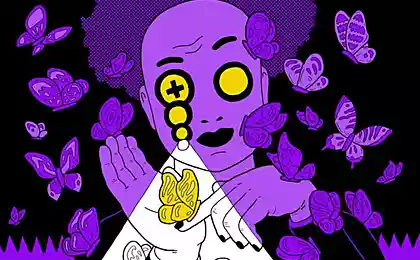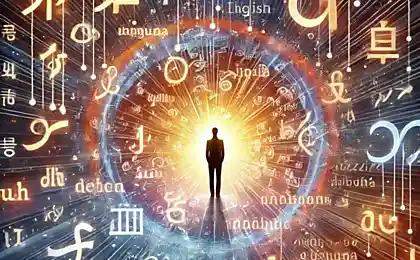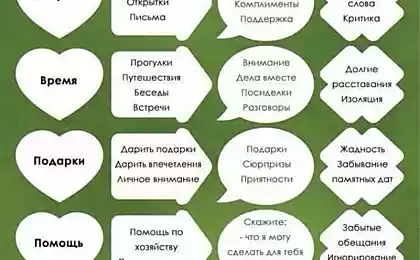504
Maybe, probably Yes, sometime
Do not stop to argue that one of the sources of knowledge may well become the study of a competent Russian speech.
After all these endless rules are not taken from the ceiling, they are caused by powerful historical context, and every Russian word has ancient roots, its original meaning, which can be dramatically opposite its modern interpretation.
Back to the disputable etymology, to the theory of the origin of certain words and their true meaning.
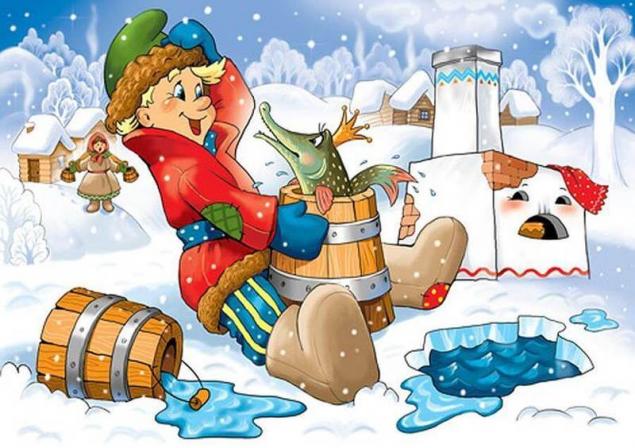
Hare at three piles strong...
Remember the Russian proverb: "the hare on three piles strong: maybe, probably Yes, sometime" or "Russian God — maybe, probably Yes, sometime"? In the modern sense of these words somehow getting hurt for our people, right? Because the same Explanatory dictionary of the Russian language, for example, "maybe" qualifies as a colloquial particle with the meaning "can be", that is "in the hope of a random success". And "probably", according to the Dahl dictionary, means "do not be afraid, do not be afraid, do not be afraid, bolder". In the dictionary Ozhegova "somehow" is sometime in the near future, somehow casually, anyway.
It turns out that these Proverbs about some Russian laziness, carelessness and irresponsibility, that Russian in important or dangerous moments of his life hopes on the fate of the case on something without merit? "Rely on chance" even attributed to national traits of our character. You are what you want, but I will never agree.
When talking about Russian laziness, somehow forget that in our language there are three words that speak of activities: business, labour and work. And each of them has its value, forms his attitude to a particular action.
The case is a lesson of a lifetime, something interesting for us, very necessary, global ("Eyes are afraid, and hands do").
Work — the word "difficult," that is the sweat and blood but respect for what it takes to live.
But "Work is not a wolf in the forest will not run away", we even ignore if it is uninteresting, dreary, done to someone, not for their soul. May our relationship to this third concept we unfairly credited as the national character of these "maybe, probably Yes, sometime"?
But so and not otherwise
On this topic is very close to me studies doctor of Philology, the Russian writer Tatyana Mironova, whose opinion is joined by many of our and foreign scientists-linguists. She says that Russian people see the world even grammatically different. To prove this assertion, she offers to think about the meanings of words that have radically changed today from its original meaning. It could not have been perezimovali.
What it meant in ancient times "maybe"? Mironov, together with other linguists divides it into three old Church Slavonic words: AND IN SE, which literally means "this way". That is, perhaps — in spite of it; do as you want.
And "I suppose"? It corresponds to the three ancient NOT BO XIE, which means "not wrong".
And the last "some time" is any price, whatever it is, come what may.
Thus, saying "Maybe, probably Yes, sometime," according to the above etymological theory, literally translated: "AND SO, THERE is NOT hurry".
So Russian is really strong on three piles. He lives by the principle:
Or all together: "but so and not otherwise at any price".
With these "piles" of the Russian character I'm really willing to accept. But not with the modern understanding, which altered it, perezimovali and turned eventually into some kind of slander...
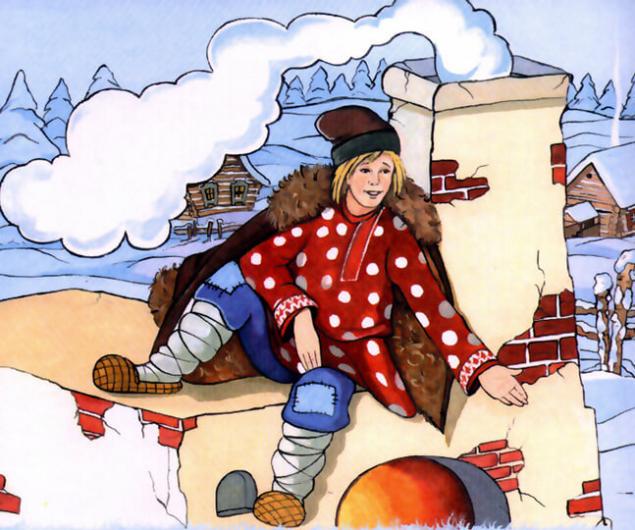
Also interesting: 10 the expressions on the origin and meaning of which many people have never thought
There are words that stun...
By the way, in Europe, only the Spanish have a similar Russian "Avos" the cry — "Donte!" There's even something mystical. When a person is on the verge, he uses the last resort beyond the limits of human capabilities, and does the impossible.
Will be grateful for your opinion expressed in the comments to this rather controversial article. published
Author: Catherine Panikova
P. S. And remember, just changing your mind — together we change the world! ©
Source: 4brain.ru/blog/%D0%B0%D0%B2%D0%BE%D1%81%D1%8C-%D0%BD%D0%B5%D0%B1%D0%BE%D1%81%D1%8C-%D0%B4%D0%B0-%D0%BA%D0%B0%D0%BA-%D0%BD%D0%B8%D0%B1%D1%83%D0%B4%D1%8C/
After all these endless rules are not taken from the ceiling, they are caused by powerful historical context, and every Russian word has ancient roots, its original meaning, which can be dramatically opposite its modern interpretation.
Back to the disputable etymology, to the theory of the origin of certain words and their true meaning.

Hare at three piles strong...
Remember the Russian proverb: "the hare on three piles strong: maybe, probably Yes, sometime" or "Russian God — maybe, probably Yes, sometime"? In the modern sense of these words somehow getting hurt for our people, right? Because the same Explanatory dictionary of the Russian language, for example, "maybe" qualifies as a colloquial particle with the meaning "can be", that is "in the hope of a random success". And "probably", according to the Dahl dictionary, means "do not be afraid, do not be afraid, do not be afraid, bolder". In the dictionary Ozhegova "somehow" is sometime in the near future, somehow casually, anyway.
It turns out that these Proverbs about some Russian laziness, carelessness and irresponsibility, that Russian in important or dangerous moments of his life hopes on the fate of the case on something without merit? "Rely on chance" even attributed to national traits of our character. You are what you want, but I will never agree.
When talking about Russian laziness, somehow forget that in our language there are three words that speak of activities: business, labour and work. And each of them has its value, forms his attitude to a particular action.
The case is a lesson of a lifetime, something interesting for us, very necessary, global ("Eyes are afraid, and hands do").
Work — the word "difficult," that is the sweat and blood but respect for what it takes to live.
But "Work is not a wolf in the forest will not run away", we even ignore if it is uninteresting, dreary, done to someone, not for their soul. May our relationship to this third concept we unfairly credited as the national character of these "maybe, probably Yes, sometime"?
But so and not otherwise
On this topic is very close to me studies doctor of Philology, the Russian writer Tatyana Mironova, whose opinion is joined by many of our and foreign scientists-linguists. She says that Russian people see the world even grammatically different. To prove this assertion, she offers to think about the meanings of words that have radically changed today from its original meaning. It could not have been perezimovali.
What it meant in ancient times "maybe"? Mironov, together with other linguists divides it into three old Church Slavonic words: AND IN SE, which literally means "this way". That is, perhaps — in spite of it; do as you want.
And "I suppose"? It corresponds to the three ancient NOT BO XIE, which means "not wrong".
And the last "some time" is any price, whatever it is, come what may.
Thus, saying "Maybe, probably Yes, sometime," according to the above etymological theory, literally translated: "AND SO, THERE is NOT hurry".
So Russian is really strong on three piles. He lives by the principle:
- PERHAPS — and here you are!
- I SUPPOSE — no, not as you want!
- And somehow — at any price!
Or all together: "but so and not otherwise at any price".
With these "piles" of the Russian character I'm really willing to accept. But not with the modern understanding, which altered it, perezimovali and turned eventually into some kind of slander...

Also interesting: 10 the expressions on the origin and meaning of which many people have never thought
There are words that stun...
By the way, in Europe, only the Spanish have a similar Russian "Avos" the cry — "Donte!" There's even something mystical. When a person is on the verge, he uses the last resort beyond the limits of human capabilities, and does the impossible.
Will be grateful for your opinion expressed in the comments to this rather controversial article. published
Author: Catherine Panikova
P. S. And remember, just changing your mind — together we change the world! ©
Source: 4brain.ru/blog/%D0%B0%D0%B2%D0%BE%D1%81%D1%8C-%D0%BD%D0%B5%D0%B1%D0%BE%D1%81%D1%8C-%D0%B4%D0%B0-%D0%BA%D0%B0%D0%BA-%D0%BD%D0%B8%D0%B1%D1%83%D0%B4%D1%8C/




